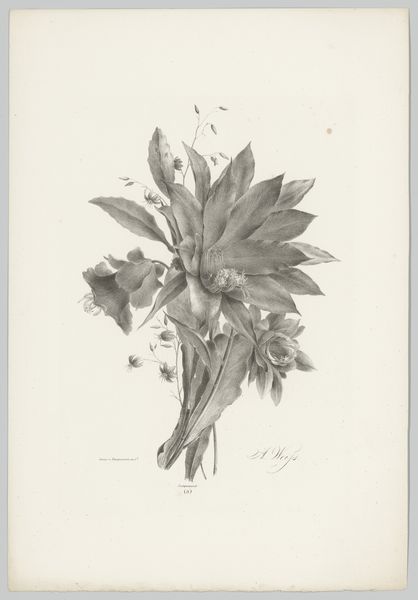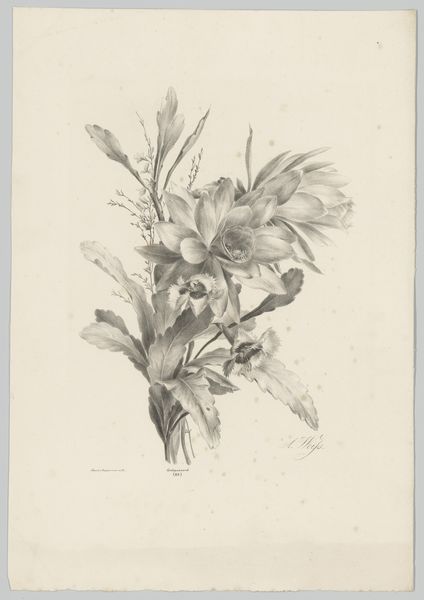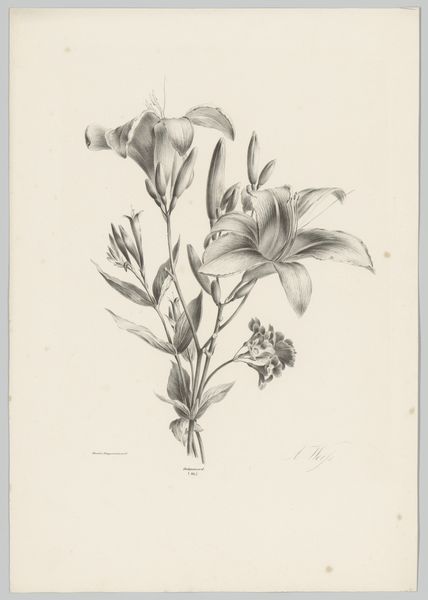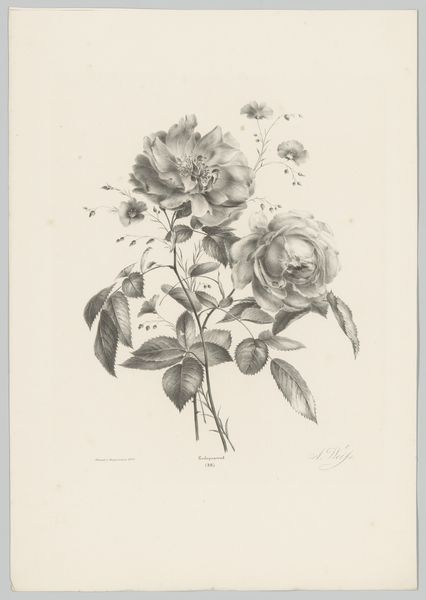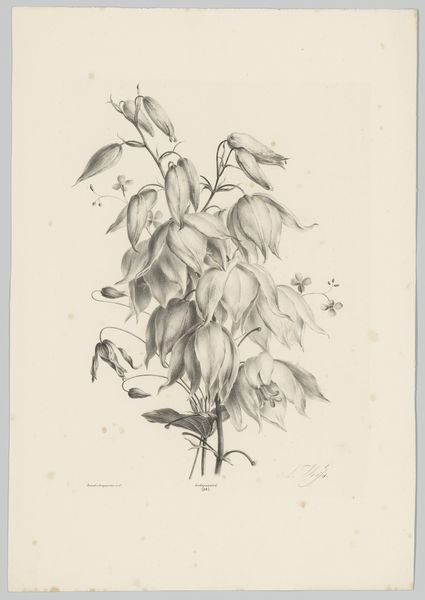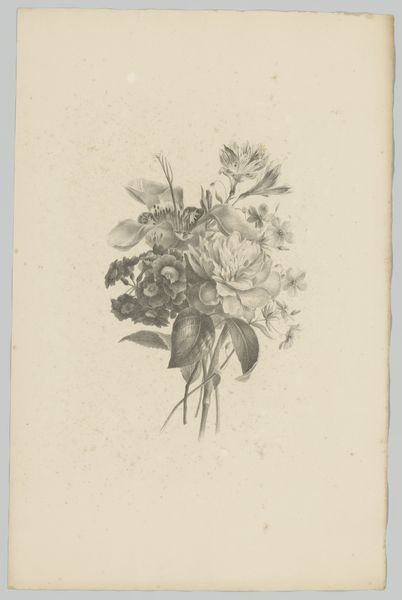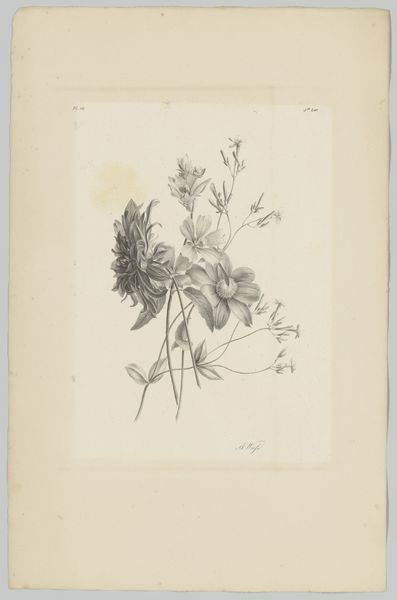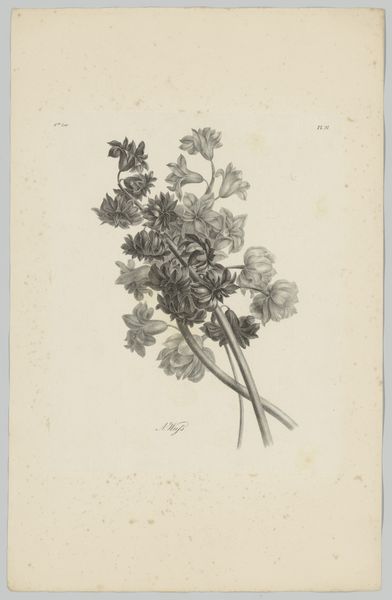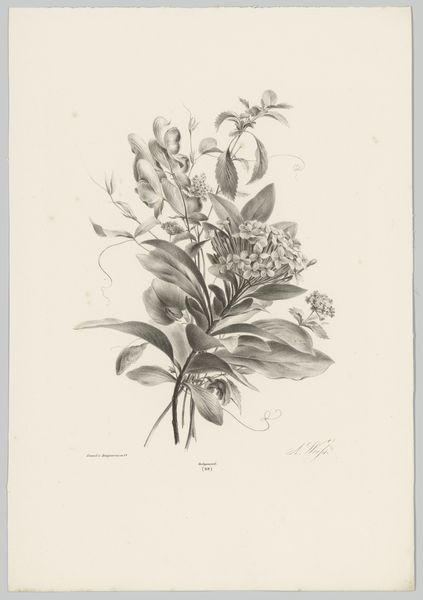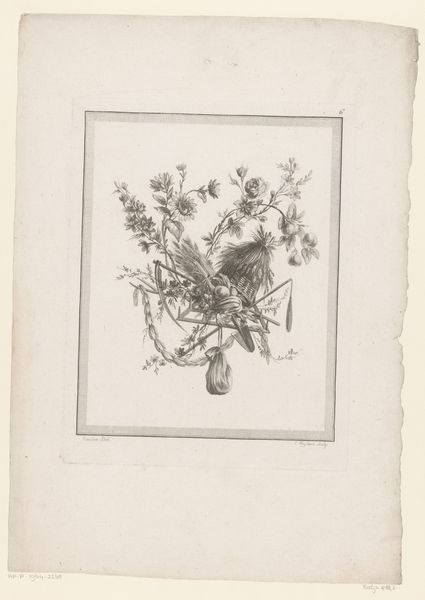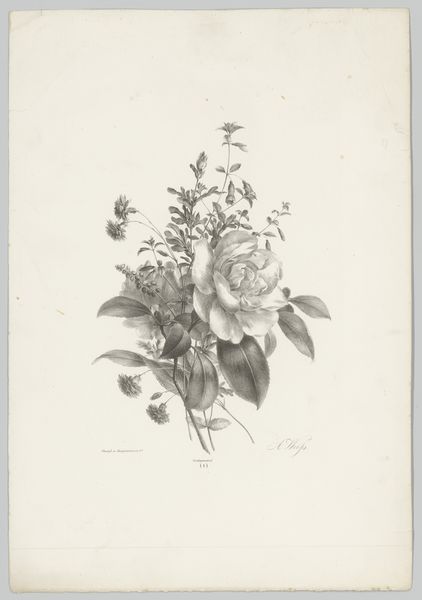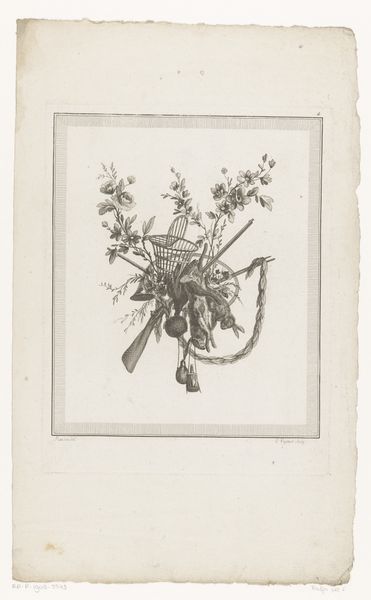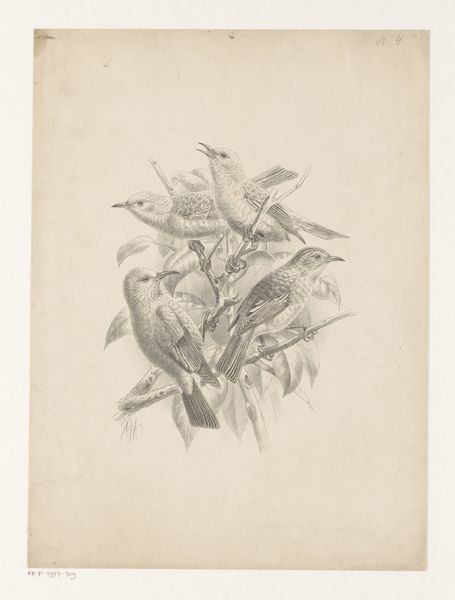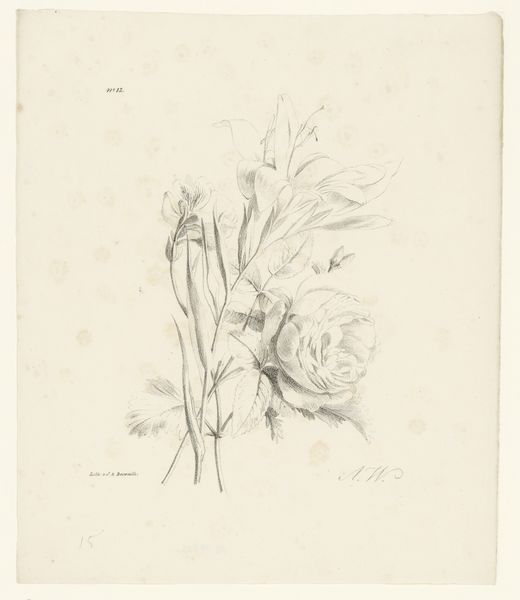
drawing, pencil
#
drawing
#
pencil sketch
#
flower
#
pencil
#
sketchbook drawing
#
watercolour illustration
#
realism
Dimensions: height 428 mm, width 294 mm
Copyright: Rijks Museum: Open Domain
Curator: This is "Viooltje en hyacint- en klokvormige bloemen," or "Violet and Hyacinth and Bell-Shaped Flowers," a drawing by Anton Weiss from 1836. It's currently held at the Rijksmuseum. Editor: It has a subdued and fragile beauty, doesn't it? The starkness of the pencil rendering really brings out the subtle textures of each petal and leaf. It looks almost like a photographic negative. Curator: Precisely. The realism here is achieved through careful gradation of tone and delicate line work. Notice how Weiss captures the subtle curvature of the petals and the way the light plays across the surfaces. It speaks to a careful, disciplined eye. Editor: The selection of materials is rather telling. Pencil allows for a replication that watercolor doesn't; in using graphite, Weiss shows a preoccupation with control, rather than surrender to process or spontaneity. Curator: An interesting point. One might argue the restricted palette focuses our attention on the compositional structure—the arrangement of forms, the interplay of positive and negative space, the delicate balance. It forces the viewer to analyze form before color, no? Editor: But isn’t that very constraint suggestive? Working with so few materials is a signal. Perhaps he found freedom within this self-imposed scarcity, a sort of democratization of depiction via a reliance on base material and a mastery of graphite. What we would once only see painted in pigment is here, meticulously laid in grey. Curator: A fair consideration. Weiss masterfully manipulates a limited medium to render remarkable detail, capturing botanical form with accuracy. A beautiful exploration of texture, light and dark, and structural organization in a deceptively simple rendering. Editor: Yes. The emphasis is, cleverly, redirected to the unseen hours, the human hand behind the hyper-realist replication—a quiet tribute to a slow and intimate artistic production.
Comments
No comments
Be the first to comment and join the conversation on the ultimate creative platform.
